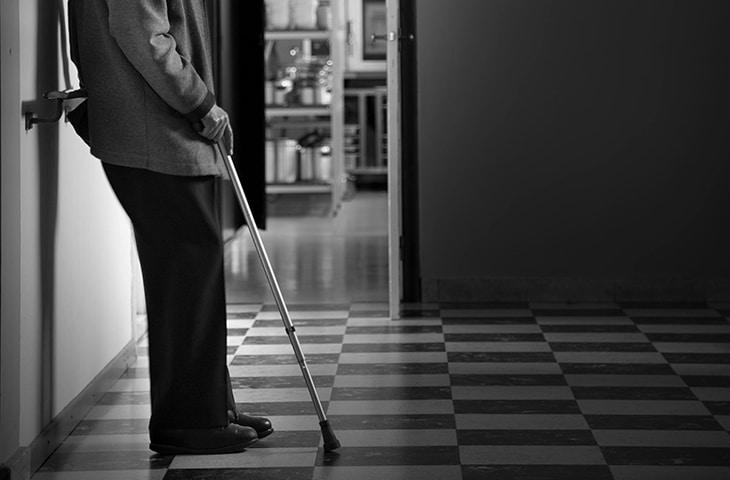New

Ezra Klein To Liberals Blaming Fox News, Saying The Economy Is Actually Good: "shut The F*ck Up With That"

'Pod Save America' host Jon Favreau and New York Times columnist Ezra Klein, host of 'The Ezra Klein Show,' talk through what we know about how Democrats started to lose working-class and lower-information voters-even before 2024-how social media and interest groups drive those divides, why blue states and cities shifted right, and what progressives can do to tackle the affordability crisis.
EZRA KLEIN: I come from outside Los Angeles. I lived in San Francisco until, you know, 18 months ago. And I live in New York City. The thing that surprised me most, at least, I'm sorry, the thing that surprised me least about the election was the sharp red shift in these big cities. Because if you just talk to anybody who lives in them, they are furious. And this idea that like, oh, no, the economy is actually good or crime is actually down. This is all just FOX News. Like, shut the f*ck up with that. Like, talk to some people who live near you. The rage I just hear from people in New York, this is partially Greg Abbott busing huge amounts of migrants here. But that does mean, by the way, there are enough migrants that Greg Abbott could bus actual human bodies to New York City. And it was a big enough problem that New York City was not able to effectively deal with it, right? It does show that what was going on the border was much worse, I think, than Democrats were letting themselves accept. That was not, for all the cruelty of what Abbott did there, that was not like an ad campaign. Those were like actual people who had come into the country who were overwhelming border states. The sense of disorder rising, right? Not just crime, but homeless encampments, trash on the streets, people jumping turnstiles in subways, right? You just like crazy people on the streets. You just talk to people and they're mad about it. They feel it's different than it used to be. I mean, in San Francisco, like the fury is overwhelming. And you see that it's not just the presidential level. London Breed, the SF just lost reelection. In Oakland, they recalled the mayor. A bunch of the progressive DAs across the country were recalled or beaten in reelection campaigns. If Eric Adams has a lot of problems, but if he were obviously on the ballot, he would almost certainly, it seems to me, lose. You have to be able to govern well. People don't follow politics, but they live in the place they live. They see if prices have gone way up and a bunch of economists telling them, no, no, no, no, don't worry about the price of everything, at least for some people and maybe net, net, a slight majority of people, real wages have modestly outpaced inflation is like not going to do it because people feel when they get a raise, that's them. And when prices are going up, that's you, the government, right? You, the government screwed something up. When governance is good, we can't build enough houses and people can't afford homes, the much broader affordability crisis, which again, Annie Lowry named some years ago in 2020, right before the pandemic. One of my big theories of politics is that the inflationary period we went through was sort of a portal of economic politics and it changed what was salient to people. For a very long time, jobs and wages had been the thing people talked about the most, coming out of the financial crisis where we had very high joblessness and very low wage increases. You had demand side problems. Inflation made prices very salient and that was prices on sort of normal things, right? Eggs and gas, but it also focused attention on the prices of things that had been building in the background for a very long time, homes, healthcare, child care, elder care, higher education, things people need, like they absolutely need them. And they got in way out of where people can afford them. Like the fact that California and New York are losing people by droves to Texas and Arizona and Florida isn't just an interesting fact about America. If you're losing people because of the cost of living in blue states, like talk about losing touch with the working class. You've made it unaffordable to live there, right? You can't really be a firefighter who protects San Francisco and buy a house in San Francisco, the city you protect, right? It's just not possible. The average house goes for, I think it's 1.7 or 1.9, the average sale price now. Unless you have money coming from somewhere else, it's not possible. These are huge failures of governance. And so in terms of what I would like to see democratic politicians repudiate, and whatever, I'm literally talking my book. I have a book coming out on this in March called Abundance. What I would like to see democratic politicians repudiate is what has made it hard for them to govern in a way where the places they are in charge, people can afford to live there, or there's enough clean energy that we can meet our climate goals. Or in California, that high-speed rail we're supposedly building that was supposed to be operational by 2020 at a cost of $33 billion. Instead, maybe at some point soon in the next couple of years, maybe 2028, 2030, we'll have a Merced to Bakersfield line that will cost as much as the entire thing was supposed to cost. And to finish the rest of it, which they have no line on the money for, will be over $100 billion. And nobody knows how they're going to get that money, and they're probably not going to get that money. This inability to govern well, where you actually hold power, I do think that matters. And when you talk about what matters to voters who aren't paying that close attention to politics, the sense of things are doing well. I just talked to Jared Polis, the governor of Colorado. Colorado had one of the smallest red shifts of any blue state in the country.


